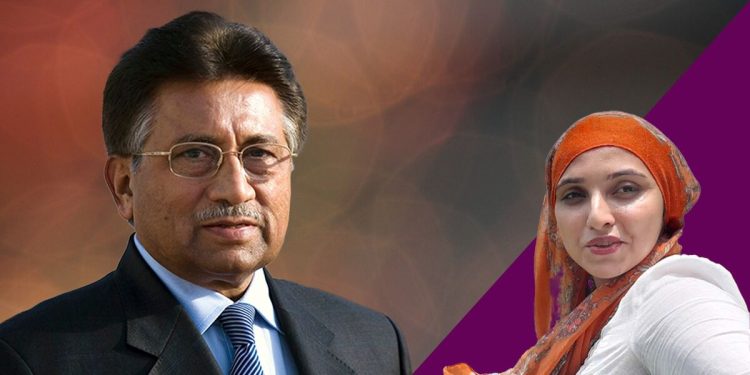Known as an absconder on multiple charges against him, this military leader who ruled the country for a decade deserved a much better farewell than this
It was just last year, or the end of 2022, when Chief of Defence Staff (CDS) of the Indian Armed Forces General Bipin Rawat died in a plane crash in India. The army
general was given full military honours during his last rites, and several leaders of different political parties paid their respect and tributes to the departed soul for his
services to the country. While in Pakistan today, we are fighting over whether we should offer prayers for the deceased army chief who once ruled the country for
almost a decade and served the nation as a soldier for more than four decades. Pervez Musharraf was certainly the one who modernised Pakistan and reshaped the
country’ss politics. Whether his spell was good for the country is another debate.
A stalwart, liberal hero and once the most influential leader of the South Asian region, General Pervez Musharraf’s life was no less than a dramatic movie. People
will remember him by many names; some compared him with Mustafa Kemal Ataturk of Turkey, some called him the man behind the May 12 Karachi carnage,
and some called him a traitor for high treason charges. But I will always remember him as the stalwart who charmed the world with his never-quitting personality and
“Pakistan First” slogan.
I will always remember him as a leader who forced former Indian prime minister Atal Bihari Vajpayee to rise and shake hands with him during his opening speech
at the SAARC Summit in Sri Lanka in 2002. This astonishing act, filled with eloquence, dignity and peace, made him a star overnight and earned him many fans
that day. His move for peace and harmony in the South Asian region at the time when two countries were on the verge of war was highly appreciated by
international critics — along with a 13-year-old me, whose heart was stolen by his display of patriotism.
How would not you be impressed by someone who looked in the eyes of an enemy, and managed to double the size of the military force while maintaining peace
talks? How would not this inspire you that your leader was known as a pugnacious and tough-talking personality within the Indian media? Wasn’t it admirable that the
country that blamed him for planning terror attacks and insurgency in their territory, was on the brink of settling the Kashmir issue with him?
Musharraf was undoubtedly the one you could not defeat in the war of words because of his charismatic nature. His stint as the Commander-In-Chief of the
Pakistan army earned him many accolades from the ‘generally naïve’ Pakistani nation. We believed he wreaked havoc for the Indian army in episodes like Kargil,
when actually he was known for impressively crossing LoC and occupying the most rugged and inhospitable mountains of the Kargil sector just to give them a
reply to the Siachen conflict.
Notably, the military strongman made some remarkable changes in the country: he gave citizens the freedom of expression and hope of a new dawn in Pakistan. The
country that only had state-owned television channels before his regime was given the right to operate satellite and private news channels. By the end of his tenure, a bulk of entertainment and news channels were operating in the country. All the private channels and media groups that still face restrictions, censorship and crackdowns by successive democratic governments must be thankful to him. However, whether media freedom and enactment of liberal laws were for the country’s good or just a move to make the military government a viable option to the masses is a matter of debate.
Some analysts call the Lal Masjid siege the biggest reason behind his downfall, and some claim that sacking CJP Iftikhar Chaudhary was the last nail in the coffin
for him, but for me, it was just lust for dominance that ruined his powerful image. He had the image of a general who became an overnight leader, but he could not
maintain that stardom for long. When his power diminished and he wanted to avoid impeachment, it made him fragile.
Today when I look back at his journey, I feel it isn’t much different from any other powerful leader who ruled this country. He wasn’t different from any of us; in fact
he was one of us; if he was an absconder, so are you and your leader(s). No matter what they call him, whether he gets the respect he deserves as a military
leader and the head of state or not, one thing is unarguably true: the man who untroduced us to the slogan “Pakistan First” cannot be a traitor.


